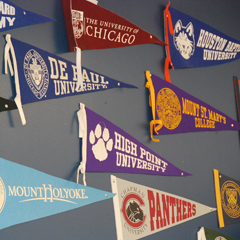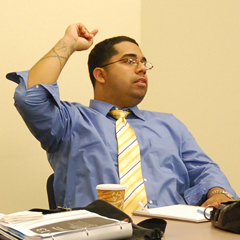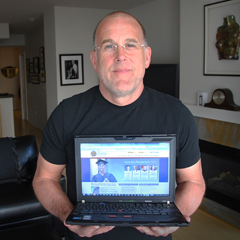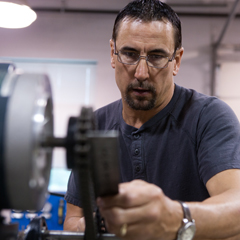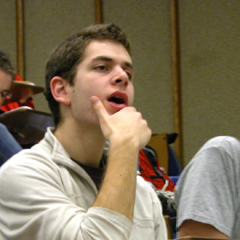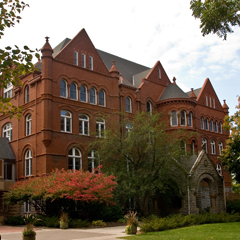TOMORROW'S COLLEGE
In the increasingly competitive 21st-century economy, higher education matters more than ever. But what's the right kind of education to get? And why are so many Americans failing to finish college? Six programs from American RadioWorks explore how higher education is changing and why it matters.
More people are going to college than ever before, but a lot of them aren't finishing. Low-income students, in particular, struggle to get to graduation. Only 9 percent complete a bachelor's degree by age 24. Why are so many students quitting, and what leads a few to beat the odds and make it through? In this documentary, American RadioWorks correspondent Emily Hanford introduces us to young people trying to break into the middle class, teachers trying to increase their chances and researchers investigating the nature of persistence.
For-profit colleges have deep roots in American history, but until recently they were a tiny part of the higher education landscape. Now they are big players. More than one in 10 college students attends a for-profit. The rapid rise of these career-oriented schools has provoked heated debate, opening up new conversations about the costs, quality and purpose of higher education. In this documentary, correspondent Emily Hanford examines the history and influence of the University of Phoenix, one of the nation's largest colleges, and explores how Phoenix and other for-profits are shaping the future of higher education.
Digital technologies and the Internet are changing how many Americans go to college. From online learning to simulation programs to smart-machine mentors, the 21st-century student will be taught in fundamentally new ways. In this documentary, Stephen Smith asks whether these innovations can help more people get access to higher education and bring down the cost of college without sacrificing learning.
More people are going to college than ever before. But in the United States, about half the people who start don't finish. There are 37 million Americans with some college credits but no degree - more than 20 percent of the working-age population. In an economy that increasingly demands workers with knowledge and skills, many college dropouts are being left behind.
College students spend a lot of time listening to lectures. But research shows there are better ways to learn. And experts say students need to learn better because the 21st century economy demands more well-educated workers.
The most popular college major in America these days is business. Some students think it doesn't pay to study philosophy or history. But advocates of liberal arts programs say their graduates are still among the most likely to become leaders, and that a healthy democracy depends on citizens with a broad and deep education.
SUPPORT

 The Tomorrow's College series is funded by a grant from Lumina Foundation, which is committed to enrolling and graduating more students from college, and by a grant from the Spencer Foundation, which is dedicated to the belief that research is necessary to the improvement of education.
The Tomorrow's College series is funded by a grant from Lumina Foundation, which is committed to enrolling and graduating more students from college, and by a grant from the Spencer Foundation, which is dedicated to the belief that research is necessary to the improvement of education.



